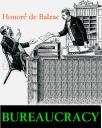 Â
Â
Martin rebuffed for violating FCC’s “un, deux, trois” rule
The Federal Communications Commission delayed then cancelled the public meeting that had been scheduled for yesterday because Chairman Kevin Martin  tried to force a vote on some mild form of cable table reregulation without getting the prior approval of two of his five fellow commissioners. Martin, a republican, may have figured he could guilt-trip two fellow republicans into supporting his attempt to exert some control over cable in return for lifting the media cross-ownership caps that prevent Rupert Murdoch from buying whatever TV stations he does not already own.
But apparently Marton violated the only rule that matters at the FCC — who has three of five votes.
If you have just parachuted into this blog and are unfamiliar with the “cross ownership” debate here’s the deal: in 1975 the FCC instituted a rule stop newspaper barons from acquiring TV stations in cities where they also owned dailies. (This Wikipedia entry says the FCC “grandfathered already-existing crossownerships, such as Tribune-WGN, New York Times-WQXR and the New York Daily News ownership of WPIX Television and Radio).
Fast forward two or three decades. Media companies, inspired by a new urge to merge, entreat the FCC to reverse that cross-ownership ban. This 2001 article in USA Today will talk about the first time Big Media tried and ultimately failed to lift the cross-ownership ban. In this 2007 article USA Today reporter David Lieberman explains the current rationale for lifting the ban. (Lieberman also wrote that 2001 article; but I do not see a more cross-ownership update in his recent archive.)
In a snarky posting yesterday I suggested that the FCC had a rule — no matter could be brought to a public vote on the five-member commission unless some faction had a three-person majority. I was being snotty. Turns out I was factually correct! Paid Content editor Staci Kramer summarized yesterday’s debacle thusly:
“FCC Chairman Kevin Martin has postponed the commission’s monthly public meeting . . .  he couldn’t convince the two colleagues needed to make a majority to go along . . . . The 9:30 a.m. meeting was postponed first until 11 a.m., and then indefinitely (and after a late-night meeting — a curious thing for a public body! — Kramer added:) . . . Late-night meeting: After dropping plans to force arbitration and postponing—for months, this time,—a vote on the (cable) rule, Martin managed to get a couple of votes through in a two-hour meeting the NYT called “acrimonious.” “
Public officials in the state of California could never have behaved in such a shameless fashion. Our state imposes open meeting rules upon its officials. It does not allow them to gather whenever and wherever they please to decide matters affecting the public. They must follow rules. The five members of the FCC, by contrast, can meet whenever, wherever, and with whomever they please to do any godamn thing they choose — a complaint made more politely in this September 2007 audit that the General Accountability Office sent to Congress.
Which is why, of course, it is so noteworthy that Chairman Martin forgot the one rule that FCC does obey. Repete, s’il vous plait: un, deux, trois!
I use the French in honor of Balzac, the novelist who captured the simpering stupidity of Parisian bureaucracy circa 1824. I scanned a plot summary of his novel, “The Government Clerks,” or “Bureaucracy,” and it struck me that his characters would feel at home in Washington, D.C. Perhaps the French are right when they say: La plus ca change, la plus c’est le meme chose.”